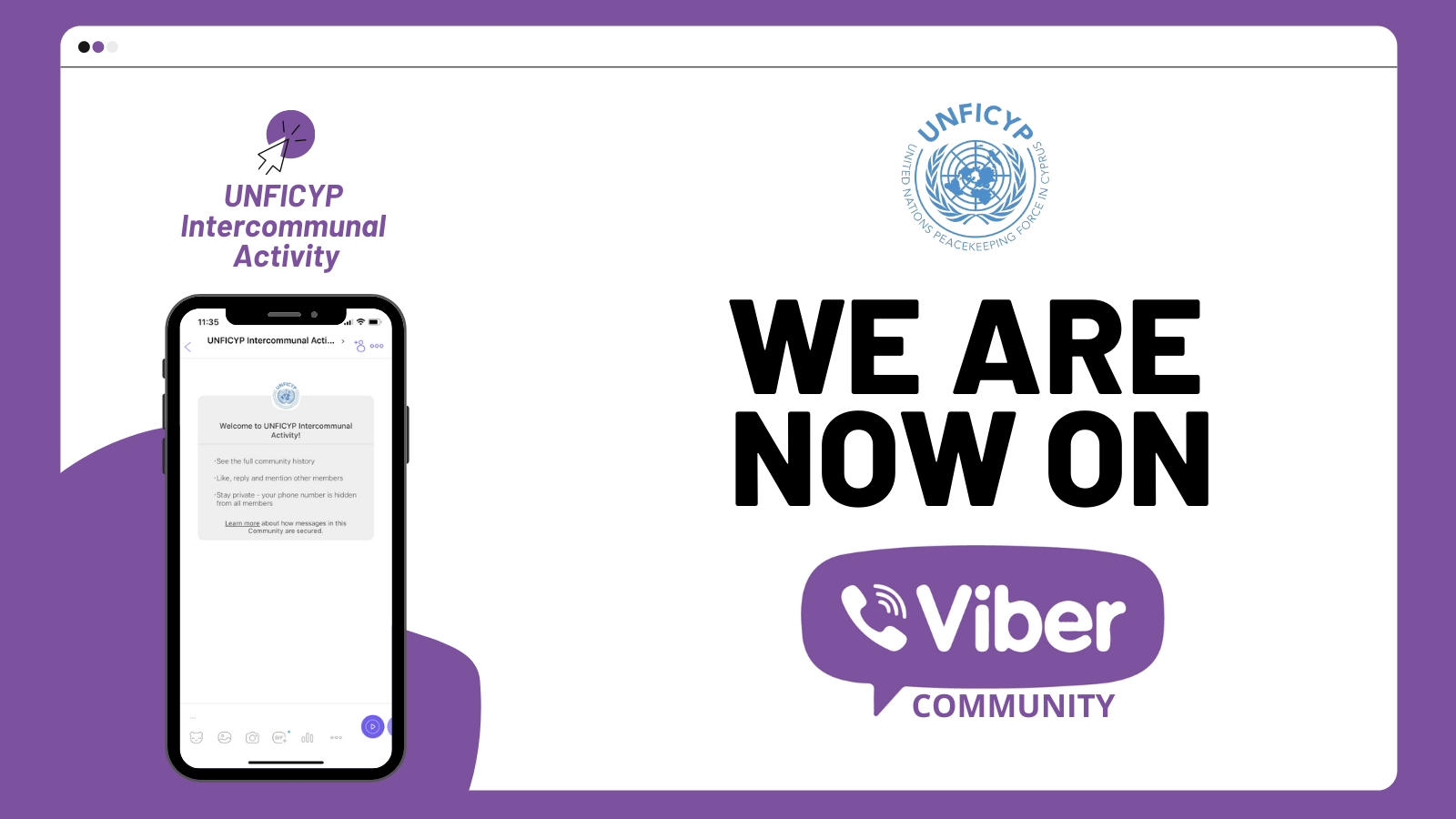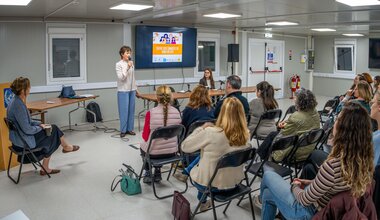UNFICYP highlights the concerns of women amidst the health crisis
Meet Constantia, a private educator living in Deryneia; She highlights the importance of supporting women who are staying at home as care providers.
Since the health crisis began Constantia has been with her two children (3 and 7 years old) 24 hours a day, keeping them busy while working remotely to support her students.
Speaking with UNFICYP she said: “Many of my students are preparing for University Entrance Exams so it’s important that I continue to support them despite the challenges of working remotely. I miss seeing my students and nothing can replace inter-personal contact, but technology has really helped keep us connected. Juggling my responsibilities as a teacher with my role as a mother can be really exhausting, both physically and mentally, particularly without any family outings or the chance to escape to the countryside.”
It has been difficult for her children too, who have been asking why they cannot see their grandparents and why they see police cars passing by so often.
Constantia acknowledged that women and men are impacted differently by the situation, and it is important to consider their different perspectives. Caretaking and household obligations have increased exponentially, and women are more likely to have to take on a larger share of this burden, while being more cut off from their social support structures.
But Constantia is grateful for her good health and recognizes that this is a time for collective action, “We have to stay at home to help curb the spread of the virus” she says.
Recently NGOs have reported an increase of domestic violence globally and locally during the outbreak with women being forced to stay home with their abusers, Constantia highlighted the need to focus- now and moving forward- on measures to prevent domestic violence and ensure access to support and services is readily available for survivors.
Unpaid care work is a critical aspect of the Covid-19 response. The outbreak is making the contribution of unpaid care to the world’s economy and maintenance of our daily lives even more stark. With children out of school, health services overwhelmed and support structures outside of the home limited, the demand for care work has dramatically increased.
 UN
UN United Nations Peacekeeping
United Nations Peacekeeping






